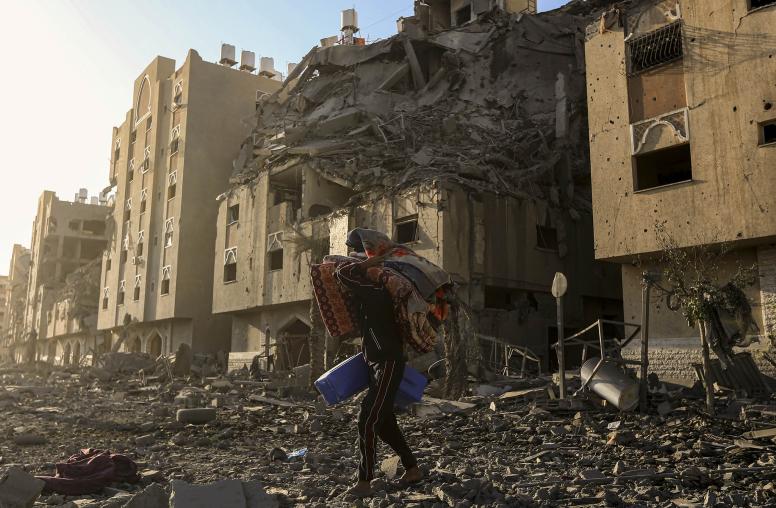Lucy Kurtzer-Ellenbogen
Contact
Please submit all media inquiries to interviews@usip.org or call 202.429.3869.
For all other inquiries, please call 202.457.1700
Lucy Kurtzer-Ellenbogen is the director of the Israel, The Palestinian Territories, Egypt and the Levant program at the U.S. Institute of Peace where she leads a portfolio of policy-informing and peacebuilding work and frequently presents and publishes in a variety of forums on political, diplomatic and civil society efforts related to the Israeli-Palestinian conflict and Arab-Israeli relations. She is co-author of a forthcoming USIP/Cornell University press volume examining the diplomatic efforts of successive U.S. administrations toward the Arab-Israeli conflict. Kurtzer-Ellenbogen has previously worked with the U.S. Department of State as an Arabic language specialist, and as the program officer for the Kennedy School of Government’s Middle East Initiative at Harvard University.




